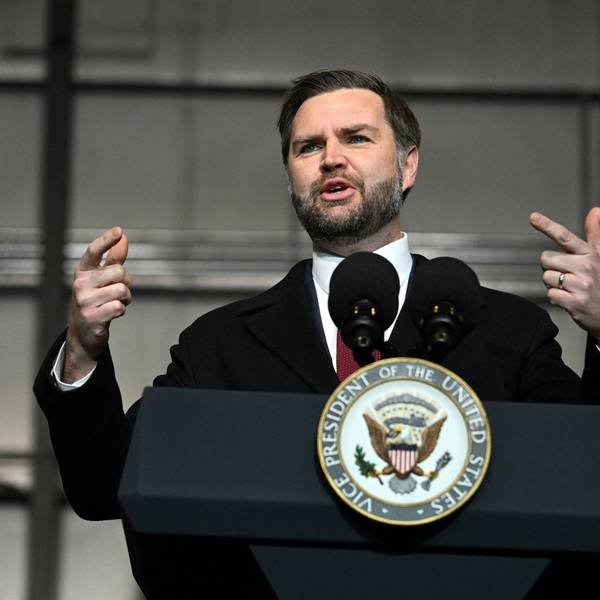"Private companies should fund, build, and run more of the basic infrastructure of American life."
That's how the Washington Post sums up a key tenet of the Trump administration's thinking on infrastructure, in an article Wednesday that outlines the White House's push to privatize "some public assets such as airports, bridges, highway rest stops, and other facilities."
President Donald Trump's budget proposal, released Tuesday, calls for spending roughly $200 billion over 10 years to spur at least $800 billion in state, local, and private infrastructure investment.
"Trump advisers said that to entice state and local governments to sell some of their assets, the administration is considering paying them a bonus," the Post reported. "The proceeds of the sales would then go to other infrastructure projects."
The plan also calls for speeding up the regulatory review process, with a fact sheet (pdf) from the White House describing the current environmental review and permitting process as "fragmented, inefficient, and unpredictable." And as Bloomberg reported: "One of the more controversial elements of Trump's outline was reducing the tolling restriction on interstate highways to attract private investment. Trump also supports allowing the private sector to construct, operate, and maintain interstate rest areas, according to the plan."
The Post continued:
The infrastructure initiative is being shaped by White House officials and a task force representing 16 federal departments and agencies. In addition, there is a committee of outside advisers co-chaired by billionaire developer Richard LeFrak, a Trump friend.
LeFrak said the administration's effort, which is being led by Gary Cohn, director of the National Economic Council, [Transportation Secretary Elaine] Chao, and others, is a sweeping attempt to rethink how infrastructure gets built. LeFrak said the issues are intensely personal for Trump, who spent his career in real estate and sees this as an area where he can make a lasting impact.
But as attorney and Public Banking Institute founder Ellen Brown warned in a recent column: "Moving assets off the government's balance sheet by privatizing them looks attractive to politicians concerned with this year's bottom line, but it's a bad deal for the public. Decades from now, people will still be paying higher tolls for the sake of Wall Street profits on an asset that could have belonged to them all along."
Furthermore, Brown wrote:
Countering the dogma that "private companies can always do it better and cheaper," studies have found that on average, private contractors charge more than twice as much as the government would have paid federal workers for the same job.A 2011 report by the Brookings Institution found that "in practice [PPPs] have been dogged by contract design problems, waste, and unrealistic expectations." In their 2015 report "Why Public-Private Partnerships Don't Work," Public Services International stated that "[E]xperience over the last 15 years shows that PPPs are an expensive and inefficient way of financing infrastructure and divert government spending away from other public services. They conceal public borrowing, while providing long-term state guarantees for profits to private companies." They also divert public money away from the neediest infrastructure projects, which may not deliver sizable returns, in favor of those big-ticket items that will deliver hefty profits to investors.
Indeed, congressional Democrats, who have called for large-scale infrastructure investment, criticized Trump's proposal as a "sleight of hand," decrying its "fuzzy math" and deep cuts to other key initiatives including Amtrak, public housing revitalization, and the TIGER program, which awards grants to states for transportation projects.
Rep. Peter DeFazio (D-Ore.) called Trump's plan "crap," while Caroline Behringer, a spokeswoman for House Democratic Leader Nancy Pelosi, said in a statement: "Trump's budget would take existing money from cities and states that pays for roads, bridges, and transit, and would give it to billionaires and corporate interests...[W]e need a real, bipartisan plan, not tax cuts disguised as an infrastructure plan."
Infrastructure is not the only area where the Trump budget prioritizes privatization. As Common Dreams reported, the administration is also seeking to cut public education programs in order to promote voucher and charter school initiatives, while some critics warned that under Trump's budget, "the slow roll to [Veterans Affairs] privatization is underway."



